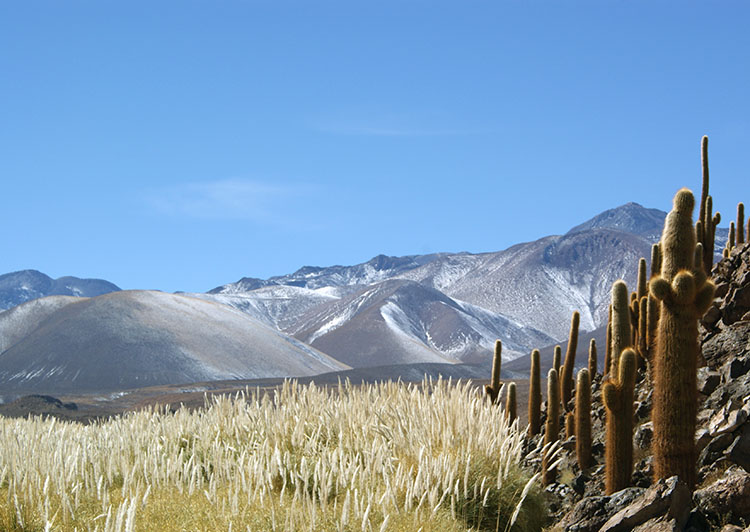
Its extreme terrain and arid environment – the Atacama Desert is one of the driest places on the planet – means there is little in the way of human development, making it the perfect spot for travelers who are keen to get off the beaten track.
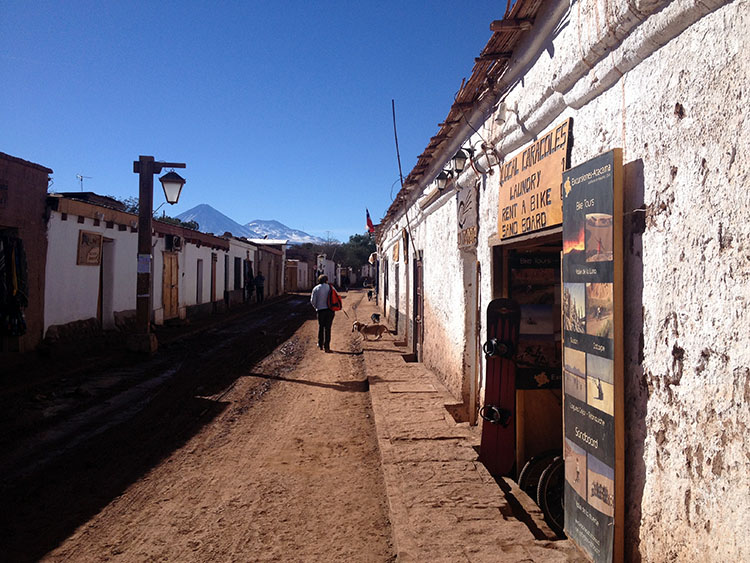
The small town of San Pedro de Atacama, in the heart of the desert, makes a great base for exploring this fascinating region and checking out some of the awesome adventures it has to offer.
Come sundown, the Valley of the Moon (Valle de la Luna), 15km west of San Pedro, is the place to be. The lunar-like landscape, which gives the valley its name, becomes even more striking as the light changes and the craggy rocks are set aflame. But it’s the Andes that demand the lion’s share of attention. From the cliff-top vantage point, you are perfectly placed to view the ridge of mountains in the east as they go from gold to red and finally a hazy pink before darkness falls. The magnificent sight is best enjoyed with a relaxing drop of the tasty local tipple, pisco sour.
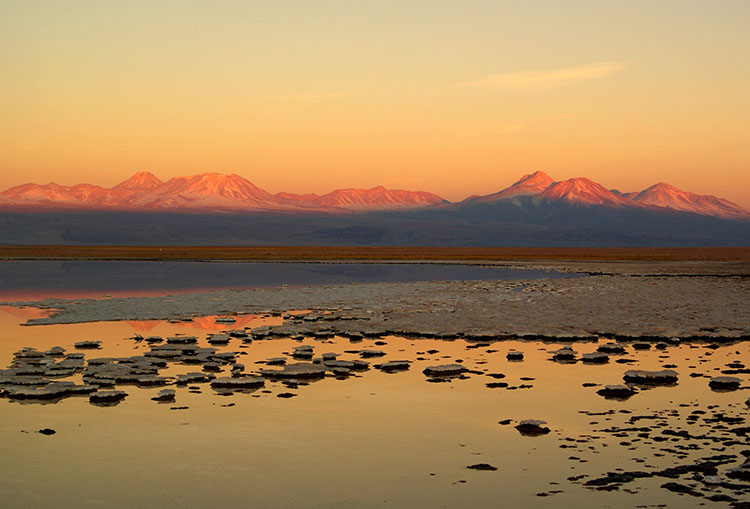
As it is the most popular tour from San Pedro, you will be sharing the experience with plenty of others. For a sunset without the crowds, try a tour that takes you into the Salar de Atacama (chile.travel), Chile’s largest salt flat. Here you’ll find huge pools with just a couple of inches of water that offer a stunning reflection of the Andes.
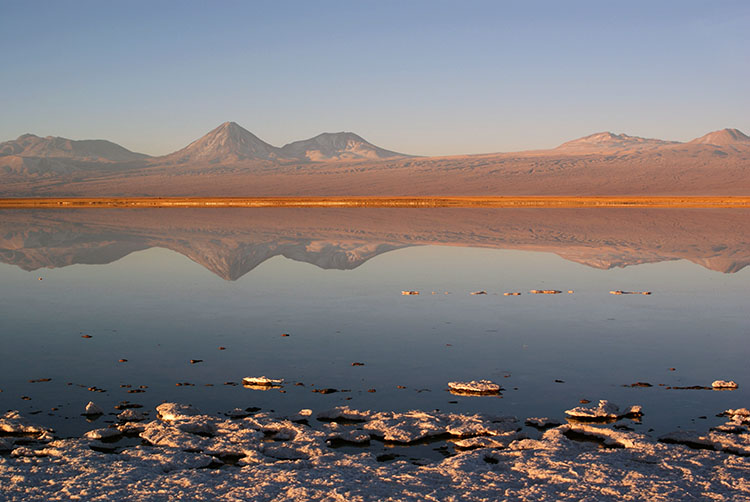
Hurtling down 100 meter-high dunes in the spectacular setting of Death Valley (Valle de la Muerte, chile.travel) is a must-do for adrenaline junkies. Just a 10-minute drive from San Pedro, the imposing dunes lay nestled among spectacular rock formations. Excursions from San Pedro take you to the valley floor, where you will receive a brief tutorial before hitting the slopes. (If you don’t speak Spanish, make sure you request an English-speaking guide when you book). Expect to have a few attempts and possibly a bruised backside before you get the hang of it, but once you do, you will feel on top of the world as you zig-zag through the desert.
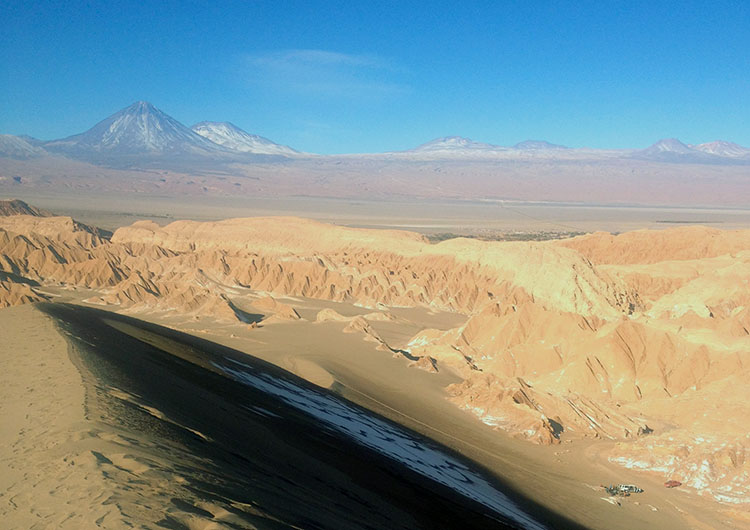
The Atacama Desert is one of the best places in the world to stargaze. With cloudless desert nights and an absence of light pollution, it’s clear to see why some of the most important observatories on earth are located here. With the naked eye alone you can see thousands of stars and make out the pale mist of the Milky Way.
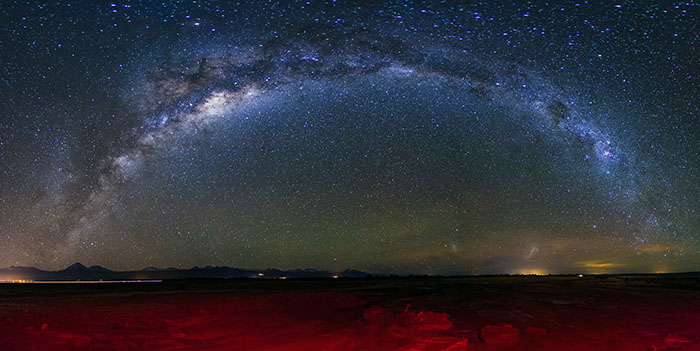
Located a 15 minute drive from San Pedro, Space (spaceobs.com) offers the best tour for those wanting a deeper insight into the night sky. As you stand under the stars, an astronomer explains what you can see and points out specific planets and galaxies with the help of a laser. You will then get chance to look at them up-close through one of their 10 telescopes. Don’t be surprised if the majestic sight leaves you feeling humbled and keen for a deep and meaningful conversation about our place in the universe.
If you fancy ridding yourself of the desert dust, head to the Cejar just south of San Pedro. This small, natural pool contains such large quantities of salt that swimming is virtually impossible. The only option is to lay back and take in the views of the immense Salar de Atacama and the distant Andes; that is, if you can brave the chilly water, which can be a toe-curling 18°C (64°F). Once you are in you can smugly enjoy the shrieks and squeals of fellow travellers as they dip their toes in the icy pool. Factor in time for a shower (there is a block of them on site) before you hop on your tour bus back to town.
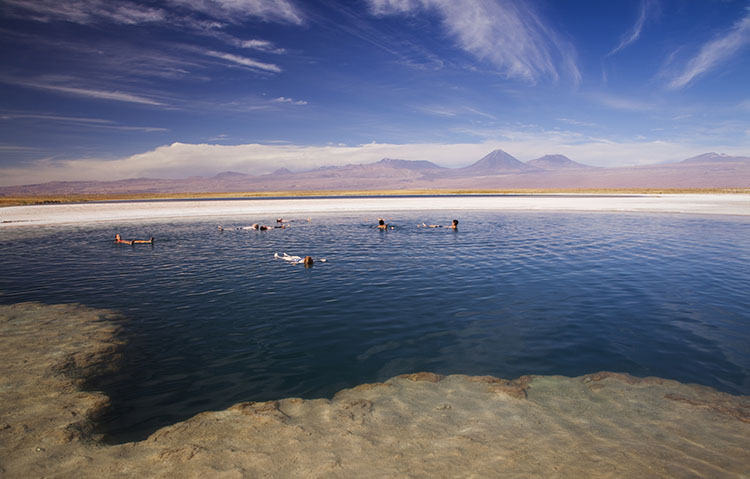
Walking through the El Tatio geyser field at dawn
The thought of a 4:30am start and temperatures which can get as low as -15°C (5°F) may not be your idea of fun, but a trip to the El Tatio geysers is well worth it. Heading north out of town, you’ll steadily ascend winding, icy roads into the Andes, where at 4300m you’ll find the highest geyser field in the world.
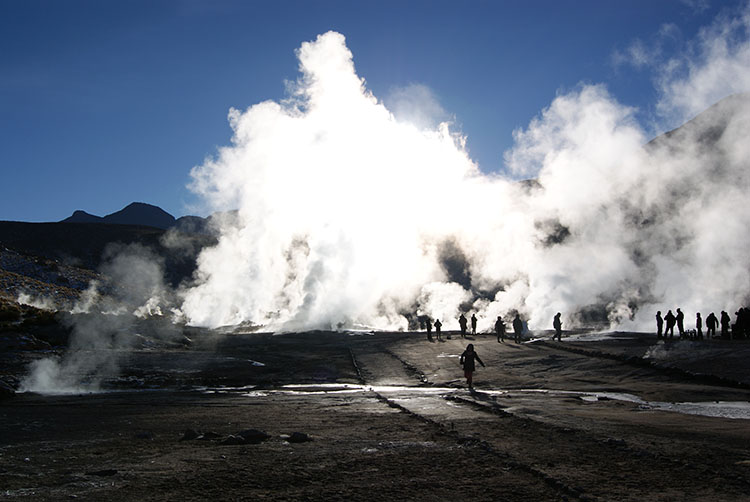
Walk among dozens of spurting geysers, each marked by a ring of stones, and watch in awe as the sun rises and pierces the clouds of billowing steam. A short drive brings you to a thermal pool where there’s time for a quick dunk before you head back to the tour bus. As you descend through the Andes, keep your eyes peeled for vicunas, the wild ancestor of the domesticated alpaca which are found in the mountains’ grassy plains.
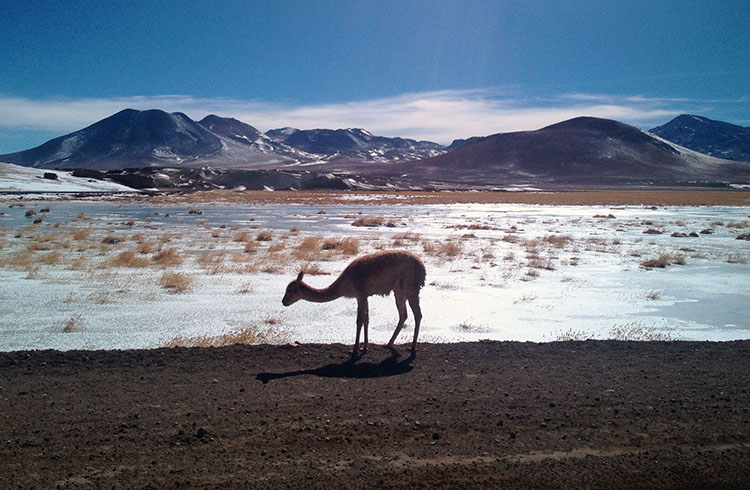
Excursions to all of these experiences can be organised in San Pedro.Tours are given in Spanish or English, with some guides providing commentary in both languages, so check before you book. Bring warm, comfortable clothes and plenty of layers for evenings and early morning starts, as temperatures vary by around 20°C (68°F) between day and night. As San Pedro is the main tourist hub in the area, accommodation isn't as cheap as in many other parts of Chile, so make sure you book in advance to find somewhere that suits your budget.

This article was independently commissioned by Lonely Planet and is sponsored by Qantas. It was originally published in September 2014, and updated in April 2015.